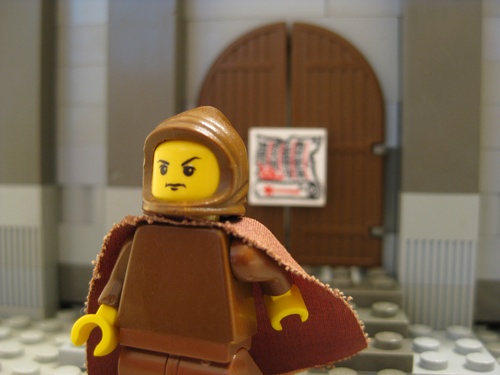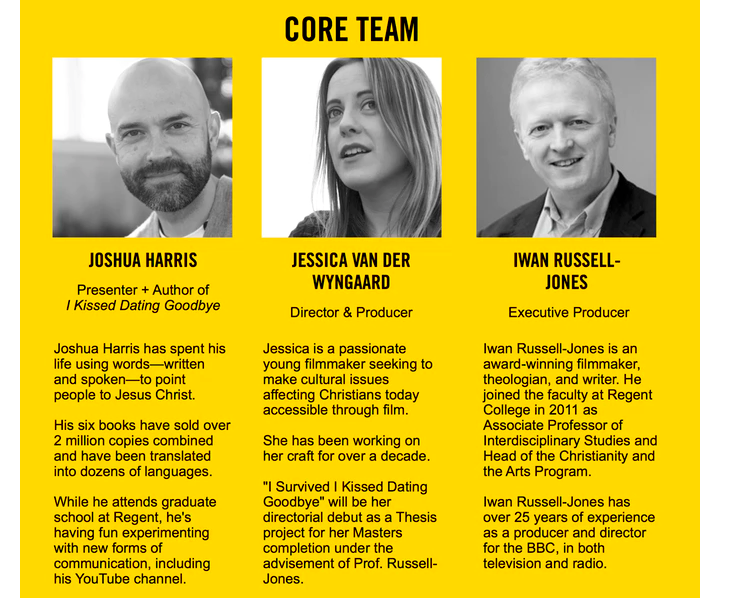July 31, 2017
500 Years On: Let’s End the Sale of Self Indulgences
The Protestant Church could do worse this 500th Reformation year than ending the habit that has gripped so much of the church at the pointy end of the 20th and start of the 21st centuries, namely the promulgation of self-indulgence.
Just as the Reformation was birthed by Martin Luther’s revulsion at the sale of indulgences to build St Peter’s in Rome, how about we put our hand up, and say “Nein!” to what, quite frankly is self-indulgence espoused in the name of the faith once and for all delivered to the saints.

Self indulgence by an over-bloated, self-focussed Western Protestant Church that, in the midst of a cultural tsunami, is content with navel gazing; is in thrall to celebrity; and is all too eager to sanctify dodgy methodologies with sub-scriptural, or non-scriptural reasoning. A bit like those medieval indulgences were if truth be told.
Carl Trueman and Amy Bird made this point succinctly and strongly in Mortification of Spin, their weekly podcast on all things grumpy and Presbyterian (tautology anyone?).
Trueman takes aim at a particular prevalent example of this self-indulgence; the move by a group including Joshua Harris, to kick start fund a documentary entitled “I Survived I Kissed Dating Goodbye”.
Now it’s 20 years since Harris’s book “I Kissed Dating Goodbye”, published by the good people at Multnomah Publishers. Here’s what Christian bookstore, Koorong, still says about the book online:
Joshua Harris’ first book, written when he was only 21, turned the Christian singles scene upside down. . . and people are still talking. More than 800,000 copies later, I KISSED DATING GOODBYE, with its inspiring call to sincere love, real purity, and purposeful singleness, remains a benchmark for books on Christian dating. Now, for the first time since its release, the #1 bestseller has been expanded with new content and updated for new readers. Honest and practical, it challenges cultural assumptions about relationships and provides solid, biblical alternatives to society’s norm.
“New readers”, or as we might put it, “fresh meat”.
And the book doesn’t. It doesn’t provide solid biblical alternatives to society’s norm. It didn’t then. And it doesn’t now. But then what would you expect from a 21 year old’s pen?
The past twenty years has revealed the answer to that question: Not much. And certainly not much in terms of depth or experience when it comes to the long haul of marriage in the “adult trenches of life”, as David Foster Wallace would have put it.
Sadly the fallout for many single Christian people in the two decades since this book has been a cautionary tale of how a cultural phenomenon spawned by a Christian culture first filled them with hope, then let them down.
Quite frankly, I blame the parents. Or as Trueman puts it in the podcast, a Christian cultural machine that includes a religious publishing industry keen to promote the new, the novel, the latest. A machine that is more than happy to put up a 21 year old as the provider of the answer to a question he hadn’t even yet explored properly in his own life.
How did a major publishing company present with any integrity such a callow voice as a defining one in terms of theological, pastoral and relational matters? Well it can if it has given itself over to getting the right product, pitching the right tone and finding the right cultural traction.
And because we allowed it. Because we are in thrall to those easy answers, those shiny youthful simplicities and the quick fix to difficult problems. And with a catchy title like that, what’s not to like?
Now this is not to pick on Harris in particular, but to point out how this is a salutary lesson in general when it comes to our self-indulgent Christian culture.
Now, with so many having had to pick up the relationship pieces over the past two decades, we’re going to get a doco from someone who, she says “survived” the book. And not just any doco – one with an equally catchy title. At least we will if a crowd can indulge her and stump up the money to get it done.
If the documentary just adds to the problem, can we expect an “I Survived I Survived Kissing Dating Goodbye” social media campaign around the time the UK is junking the last of its petrol and diesel engines?
And so the cycle of self indulgence continues. As Amy Bird says in the podcast, the document has a new promise: it offers to be “a powerful journey for all of us.” Well powerful for those of us who survived it I guess. Painful for those who didn’t. A pain that will be sharpened by the stills shots of Harris laughing/looking thoughtful/looking wistful in the kickstarter material.
I’ve said this in another context, notably the fallout from Mars Hill, but why are Christian leaders continually allowed to present themselves as the solutions to the problems they caused?
For as the campaign material reveals, today’s culture is all about the sell.

New forms of communication? Except, perhaps, for dignified silence.
A defining feature of modern cultural Christianity, and those who have either gotten it spectacularly wrong or have fallen badly, is that the gap between the fall and the next tweet, blog or online interview has shrunk dramatically. Silence is a base metal these days, no longer golden.
That lack of silence in our Christian frame, the need for a book to explain the book, or a facebook post to explain why the ABC was biased, or whatever, is a sure sign of self-indulgence. It’s our sanctified version of the Oprah couch. There seems no room for any sober self assessment, no room for elongated periods of repentance and the taking of a backseat, and trusting that the Word does not require us to say everything all of the time.
We have fallen into the belief that to take a backseat risks cultural irrelevance, a fate surely worse than physical death. There is no longer any concept that God can do His best work in our lives in the silence and the spaces between.
I learned this in a deep, and horrible manner, after a church plant I led went belly-up at the same time I came down with a chronic illness a decade ago. As someone always saying something, lying in hospital with my guts cut open, knowing that I was out of action for at least a year, feeling sidelined from ministry and devoid of, what’s that word, “influence”?, It all seemed so hard to take.
But take I had to, if my flesh was not to be indulged, if God were to do a crucial sanctifying work in me that I had held off for too long. I spent weeks, months, not having much to say to anyone and not wanting to either. Slowly, it was in that silence that God began to strip a lot of things away from me.
He stripped away my sarx just as surely as the illness stripped away my flesh. I came out of that period a changed man, and not just physically. As my lovely wife has put it, before I was a young man with much to say, but after it I had become a much older man, more reflective, less reactive, less ready to say something. My wife, wise, humble and gifted lady that she is, is – as a clinical psychologist not given to say anything too quickly – , but she said one line I will never forget:
“Going into the past year I would not have wanted it, but from this side of it, we couldn’t have done without it.”
It was in that silence that God began the still-ongoing process of cutting out my self-indulgences, ensuring that the gifts he had given me were no longer a danger to other people, due to my propensity to use them self-indulgently.
So when I read these words in the kickstarter campaign: Harris has felt pressure from all sides to do or say something, I kinda want to say, “Joshua don’t. Don’t say anything.”
I want to to suggest that, at 41, if you still feel pressure from the culture to say something, then you’re probably not prepared for the hard cultural onslaught that is coming in the next two decades that will bring you to 61.
For sober silence rather than self-indulgent promotion might just get us through the cultural squeeze we are about to face in the coming decades, and reform us in a manner we desperately need. I just hope we survive them.
Written by
There is no guarantee that Jesus will return in our desired timeframe. Yet we have no reason to be anxious, because even if the timeframe is not guaranteed, the outcome is! We don’t have to waste energy being anxious; we can put it to better use.
Stephen McAlpine – futureproof
Stay in the know
Receive content updates, new blog articles and upcoming events all to your inbox.


